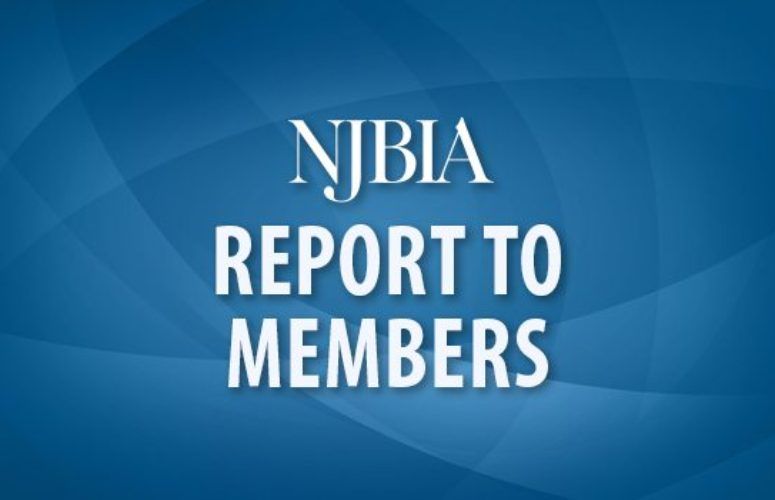
Millennial Benefits
As an employer, discover what this demographic group deems important.
By Lisa Goulian Girard, Contributing Writer On May 2, 2016When it comes to healthcare and other employee benefits, Millennials have different priorities than prior generations. As the first group to experience their formative years amidst a full range of technology, this group values things like efficiency, quick feedback and schedule flexibility – all against a backdrop of social consciousness.
“I think technology drives so much with this generation; that’s what makes them different,” says Timothy Ford, a partner in the Denville-based law firm of Einhorn Harris Ascher Barbarito & Frost, PC, which specializes in corporate issues. “They use technology and social media to see what companies are doing and what their friends are making, and they’re accustomed to instant results. Companies have had to become much more creative.”
In the area of healthcare, this bent toward technology starts with the fact that Millennials like to fill out forms and access benefits online. United Healthcare of New Jersey offers a comprehensive website with information on healthcare plans, conditions and treatments, as well as a “Help for Me” phone app that tells about available doctors, their fees for specific services, how those fees compare to what others charge, as well as actual out-of-pocket costs.
“Millennials differ from previous generations in what they perceive to be real value,” says Paul Marden, CEO of United Healthcare of New Jersey. “They’re going to do the math to see what they’re paying for and what they’re really getting.”
This group is also much more likely to use Virtual Visits, a new program rolled out by United Healthcare in January that allows the user to interact with a doctor on any computer or smartphone with a camera. Based on the outcome, that doctor may prescribe medication or refer the patient to another doctor or specialist.
According to Marden, the whole definition of health is different for Millennials. “They see it as not only a lack of illness, but as meaningful friends, an active social life, etc.,” he says. “It’s a more holistic view, as opposed to older generations, which focus on the physical state of health.”
And while their Baby Boomer parents were getting married and starting families in their 20s and early 30s, Millennials are generally waiting longer to embark on these major life events. So they’re not as concerned about family coverage, maternity leave or childcare – at least not the younger portion of this group. They prefer a more streamlined benefits package at a reasonable cost.
“This is the most educated generation, and many are already saddled with monthly student loan payments of $500, $1,000 or even $1,500,” Ford says. “To tell them to add $500 a month to that is unacceptable. They’re looking for reasonable healthcare.”
Whereas previous generations accepted the notion of sacrificing personal time to move up the corporate ladder, Millennials are interested in “work-life balance,” which can be defined as properly prioritizing between career and lifestyle considerations like health, leisure, family time and spiritual development.
“If you need them to work overtime, they’ll do it. They just don’t want to do it all of the time,” says Krishna Powell, a human resources expert and small business advisor. “They want to have that balance: ‘When they needed me to work overtime, I did. But if it’s quiet, I shouldn’t have to stay past 5 p.m.’”
When the CPA firm Withum Smith+Brown brings in a group of new hires each November, one of Millennials’ biggest concerns is paid time off, and they don’t want to put in extra hours if they don’t have to, says Joan Kampo, director of human resources. “With my generation, we worked overtime because we wanted extra money. They want the extra money, but time is important to them, too.”
The work-life balance equation can also include working remotely when appropriate. While small business owners still tend to want to “put eyes on” their employees, many Fortune 500 companies – Xerox, IBM and Apple, to name a few – are starting to advertise and promote telecommuting. “It’s less about face time and more about results,” says Judith Lindenberger, president of the Lindenberger Group, LLC, Human Resource Solutions. “Millennials like the flexibility that if they don’t have a lot of meetings one day, they have the choice to work from home. Why get dressed up and spend time commuting when you can spend that time getting the job done?”
At the same time, this group wants to be part of the company dynamic. As a highly educated generation, they’re interested in what an organization can teach them, and they want open and frequent communication. In response to employee requests, Withum Smith+Brown no longer waits until the end of a big project to evaluate their employees, but gives feedback every six weeks. In addition, every new employee is assigned both a career coach – a seasoned employee who meets with them two to three times a year to evaluate performance and help them set goals – and a career mentor, someone either at the same level or a level above who makes sure they get the training they need.
Other companies have responded by holding “town hall” style meetings that promote a discussion between employees and management, where senior leadership can share details about company performance, discuss future plans and respond to employee concerns. “That’s one of things that separates the Millennials. They want an office environment that encourages more collaboration,” Ford says. “You see huge a difference from other generations.”
With social media, Millennials talk about job benefits and compensation more than their predecessors, and they use websites like www.glassdoor.com to access information about what companies are paying. Yet, it’s not only about money for this generation. They want competitive wages, but they will also look at other factors when evaluating a company.
In the past, companies would pay for young employees to go back to school; now it’s becoming more common for employers to assist with student loans – either through a signing bonus, or by providing a low-interest loan for student debt. Some favor an open office environment, where the CEO might sit near an entry level employee. Others might be impressed with fresh food services or a gym in the building, a state-of-the-art kitchen, or a lounge with a television. Even a nearby Starbucks can tip the scales for certain Millennials.
And more than any who came before, this generation is known for valuing altruism in the companies for which they work. They look not only at what a potential employer can offer them, but what that employer gives back to the world. Lindenberger points to her own daughter, a Millennial who works for a large pharmaceutical company. “Do you know what her favorite benefit is?” she asks. “Once a year, they have a paid day off when they can go out and do something for the community.”
According to Powell, Millennials are even willing to make less money if they believe in the mission of an organization. “Corporate America is thinking, ‘Let’s give them a bonus, throw money at them,’ but they’re thinking about giving back to society,” she says. “As a company, you’d better tap into that if you want to do well with this generation of employees.”
Related Articles:






